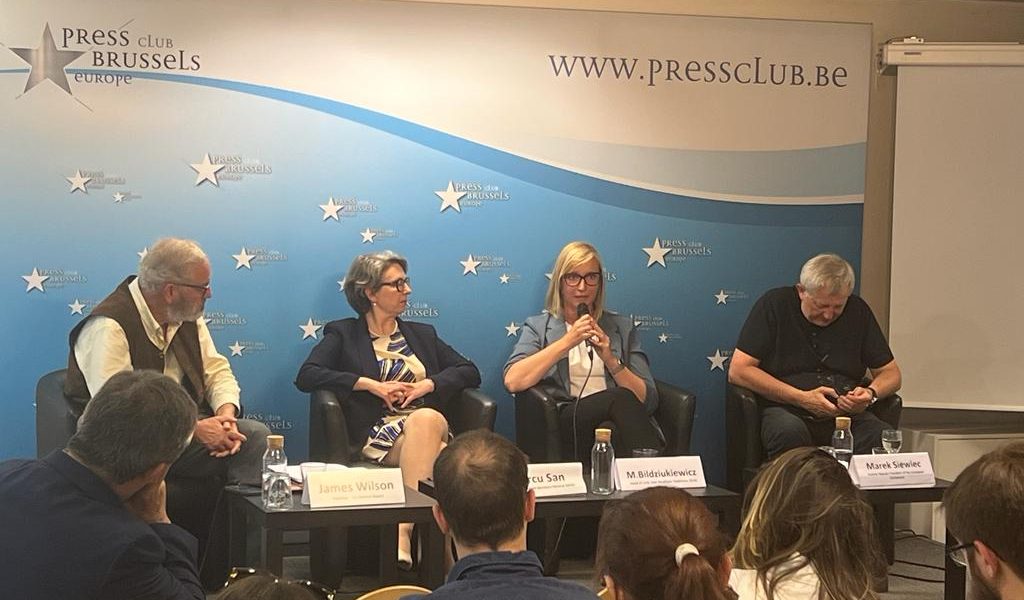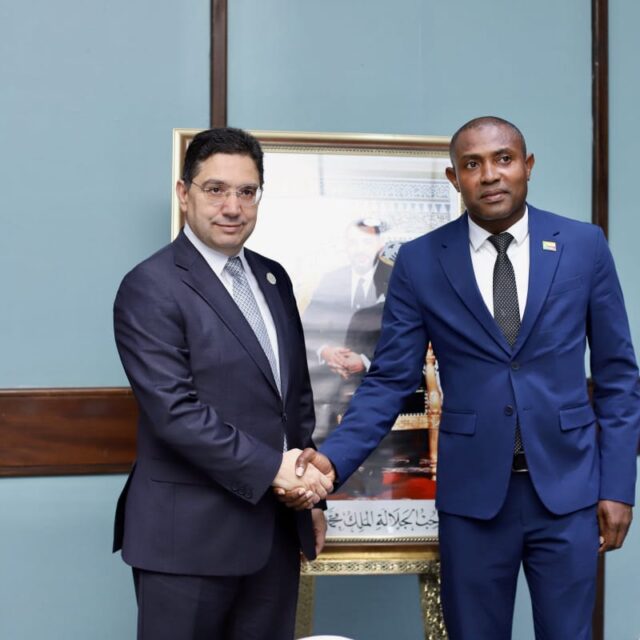A senior NATO official told a Brussels conference she is confident war-torn Ukraine will soon join the western alliance.
Burcu San, Deputy Assistant Secretary General, NATO, said the country was under a “brutal, unprovoked attack” and it was in the interests of the West to help Ukraine.”
“It very much feels threatened so we must help Ukraine to prevail.”
The invasion by Russia, she said, had been a “catalyst for further Nato adaptation” and also a reminder of the value of collective defence.
She told the event on Tuesday, “The allies have provided billions of euros in maintaining assistance to Ukraine and everyone is pulling their weight.”
“NATO has given strong support, such as fuel and medical equipment to the Ukraine armed forces and this has been very effective for both the military and civilian society.”
She added, “Ukraine must prevail as an independent and sovereign nation but there is a peace to win after the war.”
“A long term effort is needed to break the cycle of Russian aggression and to achieve a durable and enduring peace.”
She told the half day conference, “I believe Ukraine will become a NATO member in the future but the flagship post war aim is defence planning for Ukraine”.
Another speaker was Martyna Bildziukiewicz, Head of Unit, East StratCom TaskForce set up by by the EEAS in Brussels in 2015, who spoke about the fight against disinformation
She described the invasion as “a game changer” and said there is “not enough awareness of how disinformation influences public opinion” including in places like Africa and Asia.
Russia, she said, had a “track record” of disinformation, such as saying that Ukraine had “committed genocide.”
She said, “Ukraine has been the main target of Russia disinformation for years and the EU proudly supports its efforts to combat this. But it is not about telling Ukraine to do this and that. We have come a long way in combatting disinformation because back in 2015 it was a few people running a database.”
A key moment, she said, was the pandemic “when many people realised how disinformation can kill.”
When asked by the moderator, Brussels-based publisher James Wilson, if the EU should “spend more on quality journalism in the Russian language so as to combat Russian state propaganda,” she replied,”Yes, There are many Russians who deserve access to credible information in their own language and we do already invest in this.”
The aim of the conference was to present, elaborate and develop some of the work streams that are currently being addressed by The Economic Institute in Warsaw, in preparation for the 32nd Economic Forum (‘Polish Davos’) which will take place in Karpacz from 5-7 September.
In the session on Ukraine, speakers were asked: What can be done to combat disinformation? How can we secure Ukraine’s infrastructure and energy supplies? What prospects for Ukraine’s NATO and EU membership? What is the role for cities and regions as partners for peace.
There was also an exhibition to showcase the work of the Economic Forum, and introduce participants to thematic forums such as the Healthcare Forum, as well as the Regions, Energy, Cybersecurity, Security and Innovations Forums.
It was held at the Brussels Press Club Europe which in a show of solidarity also functions as the Kyiv Press Club in Brussels welcoming Ukrainian journalists as honorary members.




